We explain who Alexander the Great was, and explore the history of his conquests. In addition, we discuss his characteristics and death.
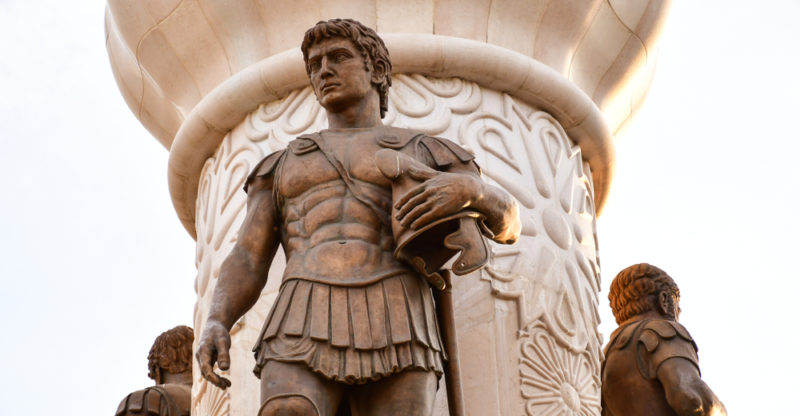
Who was Alexander the Great?
Alexander the Great (356-323 BC), also known as Alexander III of Macedon, was a Macedonian king who conquered the Greek world, the Persian Empire, Egypt, and India, establishing the largest empire in antiquity.
He was born in Pella, Macedonia, Greece, the son of King Philip II of Macedon and Olympias. His father prepared him for military leadership, entrusted his education to Aristotle, and acquainted him with the Macedonian throne from a very early age.
Upon the death of Philip II in 336 BC, Alexander succeeded him as king of Macedonia. During his reign, he spread Greek culture throughout the conquered territories and initiated what is known as Hellenistic culture.
- See also: Thales of Miletus
Consolidation of Alexander the Great's power
Alexander's father, Philip II, occupied the Macedonian throne between 359 and 336 BC. During his rule, he turned Macedonia into a strong centralized monarchy and introduced a series of military reforms that positioned it as the major military power in the region. Following successive military victories, he built an army that came to control territories stretching from the Danube (in the north) to Thessaly (in the south). Furthermore, he asserted dominance over the Greek city-states, creating the League of Corinth, and secured their support for the conquest of the East.
During his father's reign, Alexander was in charge of the cavalry of the Macedonian troops at the Battle of Chaeronea (338 BC), which marked Macedonia's decisive victory over the Greek city-states.
In 336 BC, Philip II was assassinated by a member of his court, for reasons that are difficult to ascertain. On assuming the Macedonian throne, Alexander set out to consolidate and expand the empire his father had established. To do so, he had to suppress the Greek states that had taken advantage of his father's death to rebel.
In 334 BC, he fought against the Persian Empire, which had once again advanced on the Greek city-states, and defeated its king, Darius III, at the battle of Granicus. Following this victory, Alexander began to be called "Magnus", meaning "the Great". From then on, he set forth to expand the kingdom.
Conquests of Alexander the Great
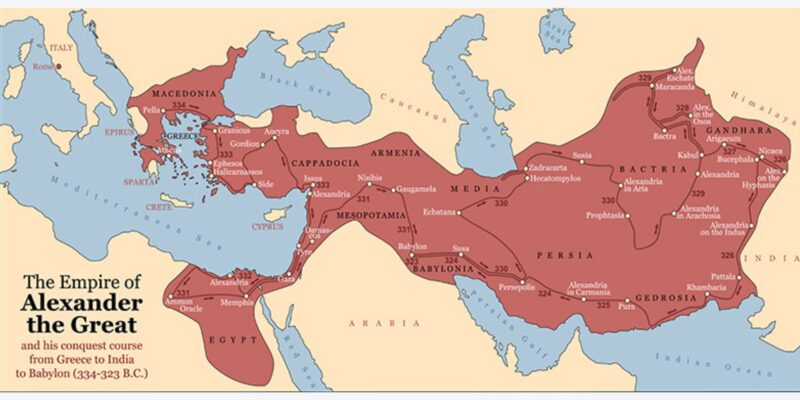
In 334 BC, the army led by Alexander entered Asia Minor and defeated the Persian troops of Darius III. Two years later, he conquered Egypt and began a series of campaigns that allowed him to impose himself in the Levant, Babylon, and each of the satrapies (provinces) that had been part of the Persian Empire.
In 326 BC, Alexander began his campaign into India, where he suffered major defeats. Although he managed to extend the eastern boundary of his empire up to the Indus River, his soldiers refused to continue fighting in increasingly remote territories, faced with hostile relief and climate.
The Alexandrias of Alexander the Great
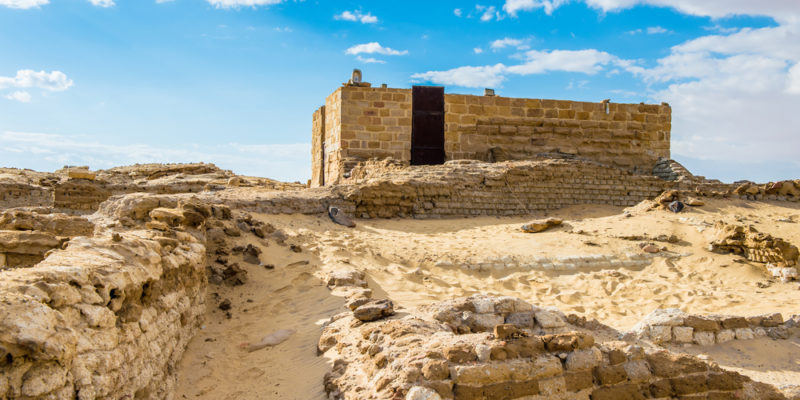
Over the course of his military campaigns, Alexander founded dozens of cities, most of which he named Alexandria, after himself. The various cities were located at strategic points throughout the empire, at the crossroads of different trade routes that connected the East with the West.
The most renowned of the cities founded by Alexander was Alexandria in the Nile Delta, in Egypt. This city came to be one of the most prestigious urban centers in the region due to its wealth and culture. It grew to have over half a million inhabitants, most of them Greeks, Egyptians, and Jews.
Military background
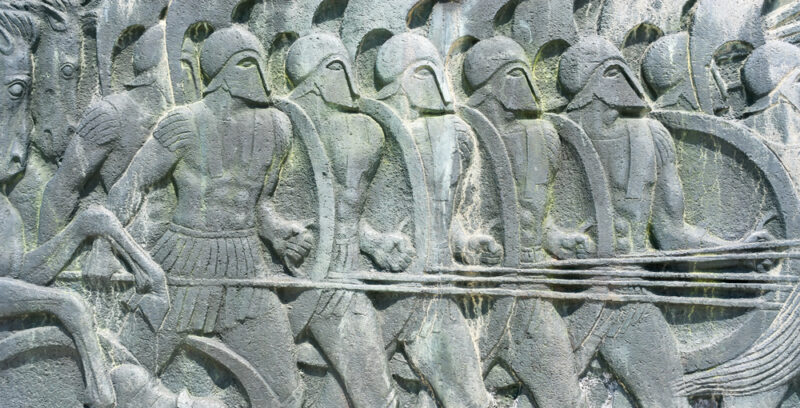
Alexander received all the military education from his father, Philip II. At a young age, he managed to assert himself as a skilled military commander, earning the respect and trust of his soldiers.
A characteristic military tactic of the Macedonian army was the so-called "Macedonian phalanx", which entailed a combat formation composed of professional soldiers trained with artillery and cavalry.
These military tactics required great training and discipline, and constituted a key element in the victory over enemy armies.
Religion in Alexander the Great's Empire
Macedonian religion and culture belonged to the Greek world. The Greeks believed in many deities, to whom they attributed human forms. Despite being immortal, Greek gods bore the same virtues and flaws as humans: they felt love, fear, jealousy, hatred, and so forth. The major deities of the Greek pantheon were the twelve gods who resided on Mount Olympus, from where they oversaw human conduct and intervened as they wished.
To venerate the gods, the Greeks erected statues housed within large stone temples. However, religious ceremonies were not held in these temples, as they were deemed exclusive spaces for the deities. Instead, congregations gathered at open-air altars and partook in ceremonies led by priests dedicated to each specific god.
Furthermore, with the expansion of the empire, Alexander allowed the conquered peoples to retain their gods, culture, and traditions.
Politics of Alexander the Great's empire
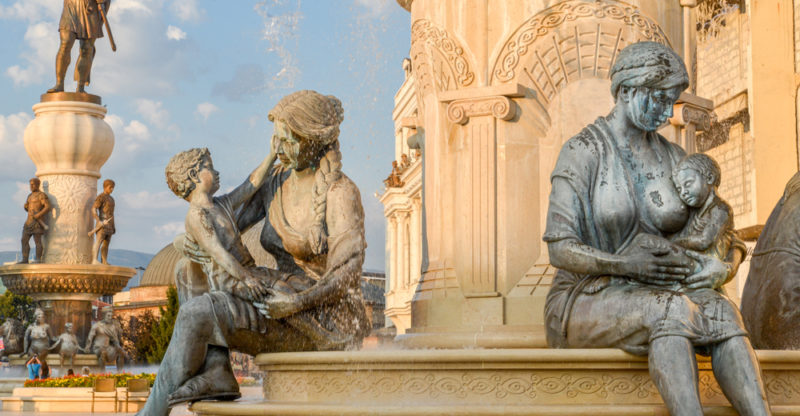
The Alexandrian Empire was a centralized monarchy. Under the influence of the Eastern political style, Alexander deified his figure as emperor. He pronounced himself the "son of Zeus-Ammon", and descendant of Heracles and Achilles, mythical heroes of Greek culture.
For the administration of the government Alexander made decisions based on the political structure of each conquered region. In general, he retained local governments, both in the Greek states and in Egypt and the Persian satrapies, and appointed Macedonian military chiefs to oversee them.
He incorporated into his entourage and among his trusted collaborators governors and military chiefs from the conquered states. Moreover, he encouraged the bond between Macedonian officials and local elites, aiming to establish a network of power that would allow him to maintain control over such vast territories.
Culture and society of Alexander the Great
Through his military conquests, Alexander the Great created an empire that comprised strikingly diverse regions, each with its own beliefs and social customs. While he fostered the expansion of Greek culture, he was respectful of local customs and traditions.
With the creation of his empire, Hellenistic culture emerged, marked by the integration and syncretism of Greek culture with Eastern cultures. However, Alexander did not live long enough to organize the society or customs of the empire he had created, and Hellenistic culture flourished during the reigns of his descendants.
Death of Alexander the Great
Alexander the Great died in 323 BC at the age of 32 as a result of an illness. Though there are versions suggesting that the emperor was poisoned, most accounts indicate that he succumbed to a disease contracted during his last military campaign.
Following his death, the Macedonian, Greek, and Persian military generals who had formed his inner circle clashed over succession, leading to the disintegration of the Alexandrian Empire into various kingdoms.
References
- “Introducción en El mundo mediterráneo en la Edad Antigua: el helenismo y el auge de Roma" (pp. 3-20). Grimal, P. (1992). Siglo Veintiuno Editores.
- “Alejandro Magno en La Antigua Grecia. Historia política, social y cultural" (pp. 410-451). Crítica. Burstein, S. M., Donlan, W., & Pomeroy, S. B. (2003).
- "Alexander the Great" Mercer, C. (2015). New Word City.
Explore next:
Was this information useful to you?
Yes NoThank you for visiting us :)